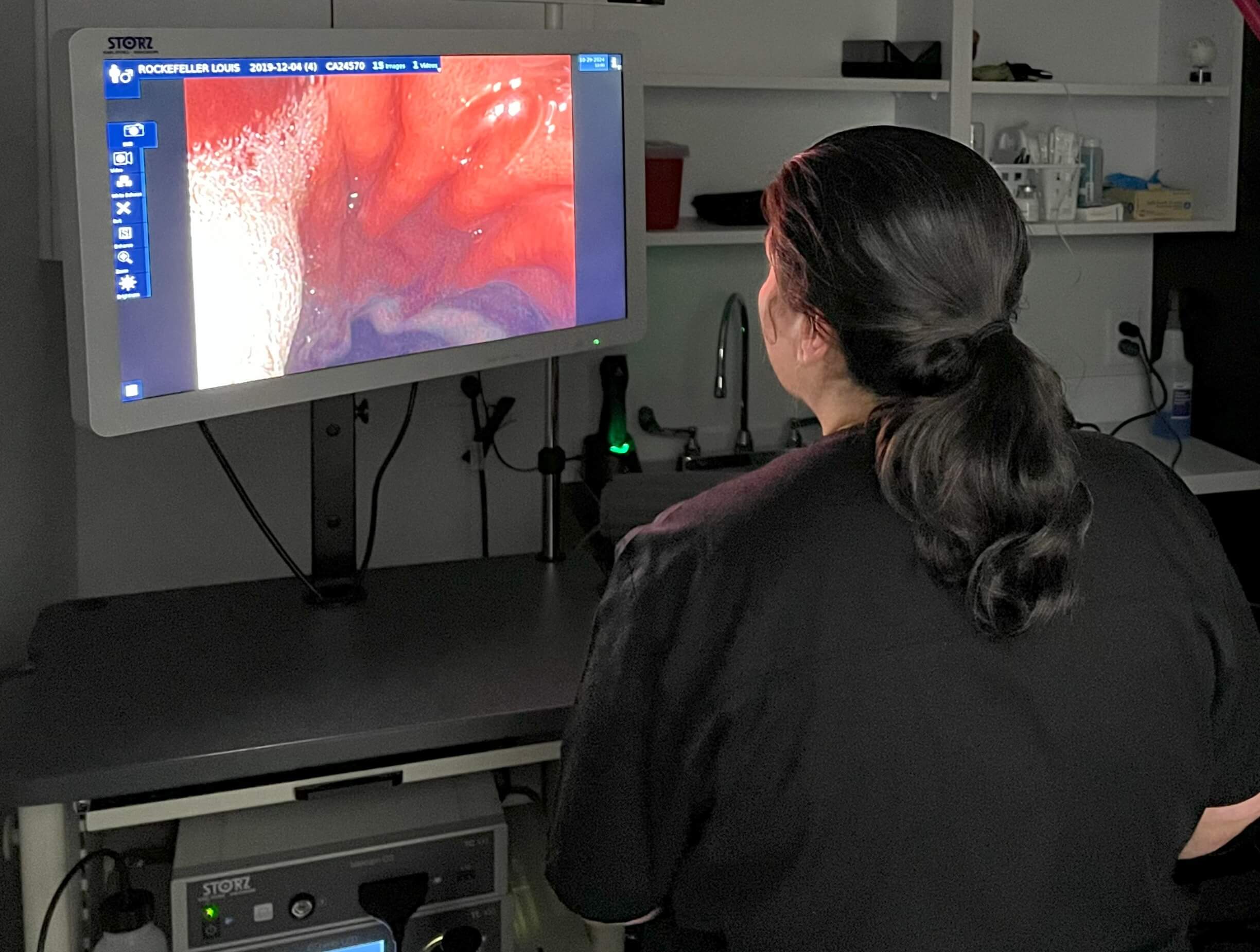At VEST we provide options in advanced diagnostic procedures such as Endoscopy, Rhinoscopy, and Bronchoscopy for pets. These minimally invasive techniques allow us to thoroughly examine and diagnose respiratory and nasal conditions with precision and care. We also perform minimally invasive procedures with quick healing times. Our dedicated veterinary team is committed to providing the highest quality of care for your furry companions.
Endoscopy
Endoscopy is a minimally invasive procedure used to examine the internal organs of your pet without the need for large incisions. It helps diagnose issues like gastrointestinal obstructions, internal bleeding, and abnormal growths, ensuring swift and effective treatment.
Rhinoscopy
Rhinoscopy is a diagnostic procedure that allows for the detailed examination of your pet’s nasal passages and sinuses. It is particularly useful for identifying nasal discharge causes, tumors, foreign bodies, and chronic infections.
Bronchoscopy
Bronchoscopy is employed to evaluate the airways and lungs of pets. This procedure is ideal for diagnosing chronic cough, bronchitis, airway obstructions, and lung diseases, allowing for targeted treatment options.
Conditions Treated
- Chronic coughing
- Nasal discharge
- Foreign object removal
- Respiratory infections
- Tumors and polyps detection
- Chronic bronchitis
- Tracheal collapse
Procedure Preparation & Aftercare
Prior to the procedure, your pet will undergo a comprehensive health check to ensure safety during anesthesia. We provide clear pre-procedure guidelines to make the process smooth and stress-free. After the procedure, our team will guide you through proper aftercare steps to promote a speedy recovery.
FAQs
- Is anesthesia required for these procedures? Yes, general anesthesia is used to ensure your pet remains comfortable and still during the procedure.
- How long does the procedure take? Typically, these procedures last between 30 to 60 minutes depending on the complexity.
- Will my pet experience pain? These procedures are minimally invasive, and pets generally experience very mild discomfort, to which we tailor pain management protocols to ease discomfort.
